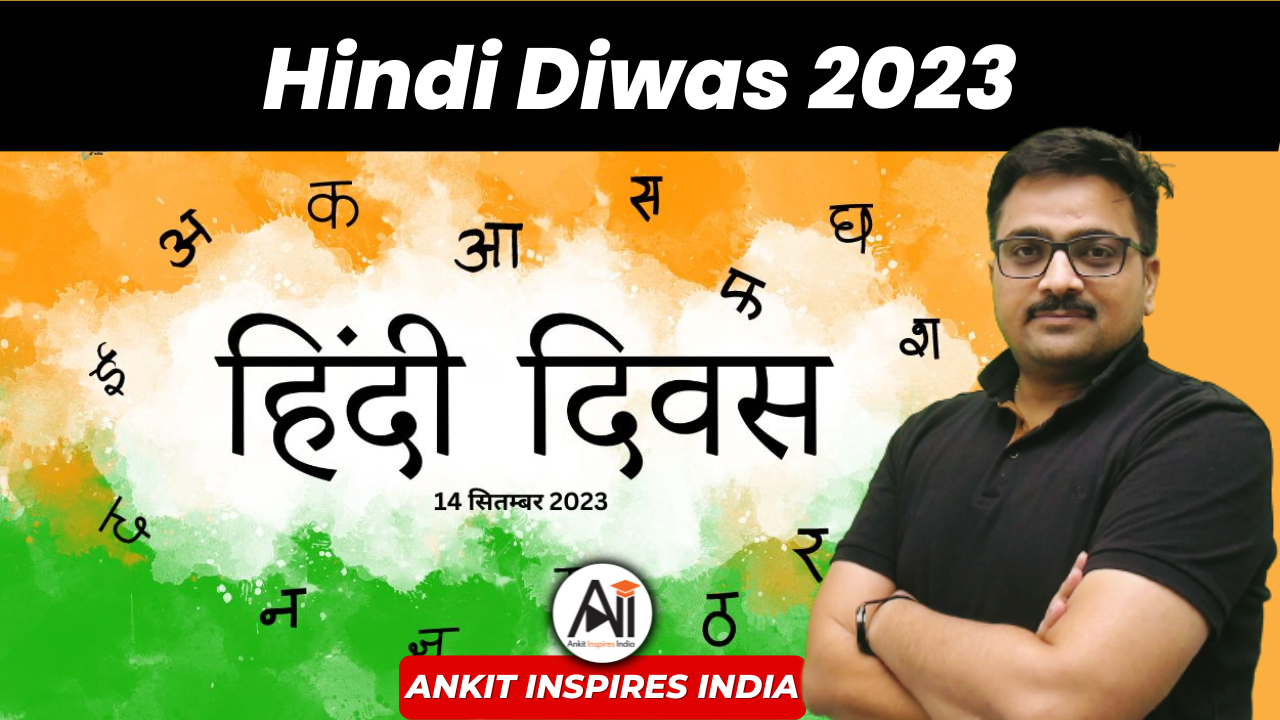Introduction
Hindi Diwas, celebrated on September 14th every year, holds a special place in the hearts of Indians. It marks the adoption of Hindi as the official language of the Indian Republic and serves as a reminder of our linguistic and cultural diversity. This occasion is not only a matter of pride for the Hindi-speaking population but also a significant topic for UPSC aspirants. In this article, we will delve into the historical and cultural significance of Hindi Diwas and its relevance for UPSC exams.
Historical Background
The history of Hindi Diwas can be traced back to the year 1949 when the Constituent Assembly of India adopted Hindi as the official language of the country. This decision was made with the aim of promoting linguistic unity and ensuring that Hindi, being one of the most widely spoken languages in India, would serve as a unifying force. The decision was formalised in the Indian Constitution with Article 343 declaring Hindi as the official language of India, written in the Devanagari script.
However, it’s crucial to note that the choice of Hindi as the official language was not without controversy. India’s linguistic diversity meant that many other languages were spoken and cherished by various communities. To address this concern, the Constitution also recognized the need to protect and promote the development of other regional languages.
The celebration of Hindi Diwas on September 14th commemorates the significance of this decision and reinforces the importance of Hindi as a language of communication and administration in the country.
Cultural Significance
Hindi, written in the Devanagari script, is not just a language; it is a carrier of India’s rich cultural heritage. It is a language that has been deeply intertwined with the country’s history, literature, and arts. Celebrating Hindi Diwas is a way of celebrating the cultural diversity and unity that Hindi represents.
1. Hindi Literature: Hindi has a vast and diverse literary tradition that includes ancient texts, classical poetry, modern literature, and more. Some of the greatest literary works in Hindi, such as the Ramayana and the Mahabharata, have had a profound impact on Indian culture and spirituality. UPSC aspirants often find references to these texts in their exams.
2. Art and Music: Hindi language and culture have also influenced various art forms, including music, dance, and cinema. Bollywood, one of the largest film industries in the world, primarily operates in Hindi. Indian classical music, which has its roots in Sanskrit and Hindi compositions, is also a subject of interest for UPSC exams.
3. Historical and Philosophical Texts: Many significant historical and philosophical texts, such as the Arthashastra and the Upanishads, were originally written in Sanskrit, which shares its script and many linguistic features with Hindi. Knowledge of Hindi can facilitate the understanding and interpretation of these texts.
Relevance for UPSC Aspirants
1. Language Paper: In the UPSC Civil Services Examination, language proficiency is essential. While candidates can choose from a list of Indian languages, Hindi remains one of the most popular choices due to its widespread use. Knowledge of Hindi can be especially beneficial in the language paper of the UPSC exam.
2. Understanding Indian Society: Hindi is not just a language; it is a reflection of the socio-cultural fabric of India. Understanding Hindi can help UPSC aspirants gain insights into the customs, traditions, and beliefs of a significant portion of the Indian population, which is valuable for topics related to Indian society and culture.
3. Accessibility to Resources: A vast array of study materials, newspapers, and magazines related to UPSC exams are available in Hindi. This makes it easier for aspirants who are comfortable with the language to access resources and stay updated with current affairs.
4. Regional Relevance: Hindi is not only spoken in the Hindi heartland but also in various parts of India. It is often used as a second language in states where Hindi is not the primary language. This knowledge can be advantageous for candidates appearing in exams with a regional focus.
5. Communication Skills: Effective communication is an essential skill for civil servants. Proficiency in Hindi can be a valuable asset, especially when dealing with a diverse population that includes Hindi speakers.
Conclusion
Hindi Diwas is not just a day of celebration but a reminder of India’s linguistic and cultural diversity. It symbolises the importance of Hindi as the official language of the nation and highlights its role in preserving and promoting Indian culture and heritage. For UPSC aspirants, understanding the significance of Hindi Diwas goes beyond the celebrations; it extends to the practical benefits it offers in the pursuit of a civil services career.
In conclusion, Hindi Diwas serves as a testament to the linguistic and cultural tapestry of India and its relevance in the context of UPSC exams cannot be understated. Embracing Hindi as part of one’s journey in the world of civil services can open doors to a deeper understanding of India and its people, ultimately contributing to the aspirant’s success in the UPSC examination.





हिंदी दिवस की शुभकामनाएं। हिंदी दिवस पर अगर आप हिंदी में ही पूरा लिखते तो मुझे और भी अच्छा लगता। वैसे आपके द्वारा दिया गया जानकारी सभी परीक्षाओं के लिए काफी सहायक रहता है। धन्यवाद।
Hindi Diwas, celebrated annually on September 14th, is a cherished occasion for all Indians. It commemorates the adoption of Hindi as our official language, reflecting the rich linguistic tapestry of our nation. Beyond cultural pride, it holds noteworthy importance for UPSC aspirants, exploring the historical and cultural facets relevant to their exams.